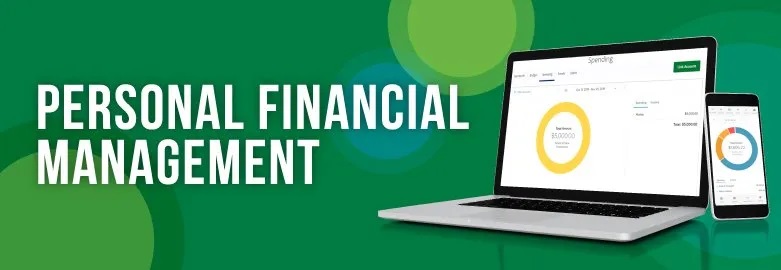Economy
Building a Strong Financial Bridge: Overcoming Short-Term Financial Hurdles

Financial challenges are an inevitable part of life. From unexpected expenses to unforeseen emergencies, everyone faces short-term financial hurdles at some point. However, with the right approach and mindset, these obstacles can be navigated successfully with the help of the best short-term loans, a realistic budget, and additional support should you need it. In this blog, we will explore some effective strategies for building a strong financial bridge to overcome short-term financial hurdles.
Acknowledge the Hurdle: The First Step to Overcoming It
The first and most crucial step in overcoming any short-term financial hurdle is acknowledging its existence. Avoiding or denying the problem only makes it worse. Take a moment to assess the situation honestly and identify the root cause of the financial challenge. Whether it’s a sudden medical expense or a car repair, knowing the exact issue will help you plan a targeted approach to resolve it.
Create a Realistic Budget: The Foundation of Financial Stability
A well-planned budget is the foundation of financial stability. After identifying the hurdle, create a realistic budget that takes into account your income, expenses, and savings goals. Categorize your expenses into essential and non-essential items and prioritize the necessary ones. By closely monitoring your spending and adhering to your budget, you can free up funds to tackle the short-term financial challenge.
Build an Emergency Fund: Your Safety Net
An emergency fund is a lifeline during times of financial distress. Start setting aside a portion of your income into a separate savings account dedicated solely to emergencies. This fund will act as a safety net when unexpected expenses arise, helping you avoid resorting to credit cards or loans that could lead to long-term financial strain.
Explore Additional Income Streams: Side Hustles for Extra Support
If your current income is not sufficient to cover your expenses and build an emergency fund, consider exploring additional income streams. Side hustles, such as freelancing, online tutoring, or selling handmade crafts, can provide an extra cushion to your finances. The gig economy offers various opportunities to monetize your skills and interests.
Negotiate with Creditors: Seek Temporary Relief
If you find yourself struggling with repayment of loans due to a short-term financial hurdle, don’t hesitate to reach out to your creditors. Many lenders are willing to work with borrowers facing temporary financial difficulties. You may be able to negotiate reduced payments, deferments, or temporary interest rate reductions. Maintaining open communication with your creditors shows responsibility and increases the likelihood of finding a mutually beneficial solution.
Avoid Unnecessary Debt: The Slippery Slope
When facing a short-term financial hurdle, it may be tempting to rely on credit cards or loans as a quick fix. However, accruing unnecessary debt can lead to a vicious cycle of financial stress. Instead, focus on budgeting, cutting unnecessary expenses, and seeking alternative solutions to address the immediate challenge without adding to your debt burden.
Seek Financial Guidance: Expert Advice
If you feel overwhelmed or uncertain about how to handle your short-term financial hurdle, don’t hesitate to seek professional financial advice. A financial advisor can provide personalized guidance and help you develop a plan to navigate through the challenge effectively. They can also offer insights into long-term financial planning and building a robust financial foundation.
Learn and Adapt: Strengthening Your Financial Resilience
Every financial hurdle is an opportunity for learning and growth. After overcoming the short-term challenge, take the lessons with you and adapt your financial strategy accordingly. Use the experience to strengthen your financial resilience and be better prepared for any future obstacles that may arise.
Short-term financial hurdles are part of life’s journey, but with a proactive and disciplined approach, they can be successfully navigated. By acknowledging the hurdles, creating a realistic budget, building an emergency fund, and seeking additional income streams, you can build a strong financial bridge that will help you overcome these challenges. Remember, seeking professional advice and learning from the experience will further fortify your financial resilience, empowering you to face future hurdles with confidence.
Economy
Nigeria Earns N1.17trn from Petroleum Sector in November 2025

By Adedapo Adesanya
Nigeria earned N1.17 trillion from the oil and gas industry in November 2025, lower than the N1.396 trillion generated in October 2025 by 16.2 per cent, according to data presented to the Federation Account Allocation Committee (FAAC) by the Central Bank of Nigeria (CBN).
The CBN, in the latest data available, noted that the N1.17 trillion earnings from the petroleum industry in November 2025 represented 96.4 per cent of the N1.214 trillion revenue budgeted for the sector for the month under review.
In comparison, revenue from the petroleum industry in October 2025 represented 94.71 per cent of the N1.474 trillion budgeted for the sector in the month.
In its breakdown of revenue from the oil and gas industry in November 2025, the central bank stated that the country earned N37.134 billion from crude oil sales, climbing by 395.58 per cent from N7.493 trillion recorded in the previous month; while revenue from gas sales appreciated by 25.22 per cent to N7.265 billion in November, compared with N5.802 billion recorded in October 2025.
Furthermore, the CBN noted that revenue from crude oil royalties dipped by 25.6 per cent, from N790.086 billion in October 2025 to N587.865 billion in November; while miscellaneous oil revenue more than doubled to N1.356 billion, from N447.279 million in October 2025.
Also, it stated that royalties from gas dipped by 38.1 per cent to N9.405 billion in November, from N15.195 billion in October, while the country earned N51.842 billion from gas flare penalties in November 2025, down from N61.898 billion recorded in the previous month.
The apex bank added that revenue from companies’ income tax (CIT) from upstream oil industry operations stood at N106.106 billion in the month under review, as against N73.025 billion in October 2025.
It also stated that revenue from Petroleum Profit Tax (PPT) stood at N301.471 billion; rentals – N775.162 million; while taxes stood at N67.242 billion in November 2025; as against N242.621 billion, N3.197 billion, and N196.277 billion in October 2025.
In addition, the apex bank reported that from the country’s oil earnings in November 2025, N18.163 billion was deducted for 13 per cent refund on subsidy, priority projects and Police Trust Fund from 1999 to 2021; while N2.872 billion was deducted by the Nigerian National Petroleum Company (NNPC) Limited in respect of its 13 per cent management fee and frontier exploration fund.
It added that N26.401 billion was deducted and collected by the Nigerian Upstream Petroleum Regulatory Commission (NUPRC) in October 2025, being four per cent cost of collection; while N49.768 billion was transferred to the Midstream and Downstream Gas Infrastructure Fund from gas flare penalties in the same month.
Economy
NGX Weekly Trading Volume, Value Down as Investors Weigh Risks, Benefits

By Dipo Olowookere
The decision of investors weighing the risks and benefits of holding Nigerian stocks took a toll on the Nigerian Exchange (NGX) Limited last week.
The bourse suffered a marginal week-on-week 0.09 per cent loss, with the All-Share Index (ASI) down to 165,370.40 points. However, the market capitalisation gained 0.18 per cent in the five-day trading week to settle at N106.153 trillion.
Data from Customs Street indicated that all other indices finished higher apart from the NGX 30, NGX CG, premium, banking, pension, growth and pension broad indices, which respectively depreciated by 0.13 per cent, 0.63 per cent, 0.75 per cent, 0.63 per cent, 0.41 per cent, 1.13 per cent, and 0.22 per cent, respectively.
The level of activity also depleted in the week as the market recorded a turnover of 3.087 billion shares worth N81.505 billion in 222,185 deals compared with the 3.748 billion shares valued at N99.865 billion traded in 237,179 deals a week earlier.
The financial services industry was the most active with 1.495 billion shares valued at N33.923 billion traded in 83,939 deals, contributing 48.45 per cent and 41.62 per cent to the total trading volume and value apiece.
The services sector sold 443.222 million equities worth N4.936 billion in 17,615 deals, and the ICT space transacted 279.520 million stocks valued at N6.443 billion in 24,552 deals.
The three most active stocks for the week were Veritas Kapital Assurance, Cutix, and Secure Electronic Technology, accounting for 513.382 million units worth N1.139 billion in 4,895 deals, contributing 16.63 per cent and 1.40 per cent to the total trading volume and value, respectively.
Business Post reports that 44 stocks appreciated during the week versus 58 stocks a week earlier, 49 shares depreciated versus 40 shares in the previous week, and 55 equities closed flat versus 50 equities in the preceding week.
Zichis was the best-performing stock with a price appreciation of 59.92 per cent to sell for N4.19, Omatek expanded by 49.25 per cent to N3.00, Union Homes REIT grew by 32.94 per cent to N94.85, Morison Industries surged by 32.85 per cent to N9.99, and SCOA Nigeria grew by 32.77 per cent to N31.60.
Neimeth ended the week as worst-performing stock after it shed 26.04 per cent to trade at N9.80, Living Trust Mortgage Bank shrank by 21.36 per cent to N4.05, May and Baker lost 19.54 per cent to quote at N35.00, Livestock Feeds crashed by 13.70 per cent to N6.30, and Austin Laz dropped 13.14 per cent to finish at N3.90.
Economy
Dangote, NNPC Seal Strategic Gas Supply Deals

By Aduragbemi Omiyale
Three subsidiaries of Dangote Industries Limited have signed Gas Sales and Purchase Agreements (GSPA) with two business segments of the Nigerian National Petroleum Company (NNPC) Limited.
The three firms of Dangote Industries Limited involved in the strategic gas supply deals are Dangote Petroleum Refinery, Dangote Fertiliser Plant and Dangote Cement Plc, while the two belonging to the NNPC include the Nigerian Gas Marketing Limited and the NNPC Gas Infrastructure Company Limited (NGIC).
It was gathered that the deals were signed at the unveiling of the NNPC Gas Master Plan (GMP) 2026 tagged NGMP 2026 at the NNPC Towers over the weekend in Abuja.
The gas supply agreements will help to drive the conglomerate’s Vision 2030, resulting in increased output, better and cleaner energy supply as well as support ongoing expansion projects.
A statement from Dangote Industries Limited disclosed that the chief executive of Dangote Petroleum Refinery, Mr David Bird, signed for the refinery, while his counterpart at Dangote Cement, Mr Arvid Pathak, signed for the cement business, with Mr Mustapha Matawalle, putting pen to paper for Dangote Fertiliser FZE.
In his remarks, Mr Bird said that the agreement demonstrates the refinery’s bold steps to expand its capacity, noting that it marks a critical milestone in the expansion drive as well as a proactive measure to lock in vast energy requirements for the anticipated increase in its production capacity.
On his part, Mr Pathak point out that the deal guarantees the gas required to support the drive towards CNG adoption as Autogas and to meet the increasing gas demand as production capacities in Nigeria are expanded. It also promotes the adoption of cleaner fuel for both Autogas through CNG and gas to support increased production output, he added.
For Dangote Fertiliser FZE, it is anticipated the agreement will support the company’s fertiliser capacity expansion projects, given that fertiliser is a product of natural gas.
Also speaking at the event, the Minister of State for Petroleum Resources (Gas), Mr Ekperikpe Ekpo, described the Gas Master Plan as a deliberate pivot from policy articulation to disciplined execution, anchored on commercial viability and integrated sector-wide coordination.
“Today’s launch is not merely the unveiling of a document; it represents a deliberate shift towards a more integrated, commercially driven, and execution-focused gas sector, aligned with Nigeria’s development aspirations. Nigeria is fundamentally a gas Nation.
“With one of the largest proven gas reserves in Africa, our challenge has never been potential, but translation: translating resources into reliable supply, infrastructure into value, and policy into measurable outcomes for our economy and our people. The Gas Master Plan speaks directly to this challenge,” he stated.
The Minister further noted that the plan’s strong focus on supply reliability, infrastructure expansion, domestic and export market flexibility, and strategic partnerships aligns seamlessly with the federal government’s Decade of Gas Initiative, positioning natural gas as the backbone of Nigeria’s energy security, industrialisation, and just energy transition.
In his address, the chief executive of NNPC, Mr Bashir Bayo Ojulari, described the plan as a bold, effective execution-anchored roadmap designed to unlock Nigeria’s immense gas potential and elevate the country into a globally competitive gas hub.
Mr Ojulari noted that with about 210 trillion cubic feet (Tcf) of proven gas reserves and an upside potential of up to 600 Tcf, Nigeria possesses one of the most consequential hydrocarbon basins in the world; one reinforced by the Petroleum Industry Act (PIA) and the federal government’s gas-centric energy transition agenda.
“The plan is structured not just to deliver – but to exceed- the Presidential mandate of increasing national gas production to 10 billion cubic feet per day by 2027 and 12 billion cubic feet per day by 2030, while catalysing over 60 billion dollars in new investments across the oil and gas value chain by 2030,” he said.
The NNPC chief explained that the plan prioritises cost optimisation, operational excellence, and systematic advancement of resources from 3P to bankable 2P reserves, while strengthening gas supply to power generation, CNG, LPG, Mini-LNG, and critical industrial off-takers.
Reaffirming his personal commitment as Chief Sponsor of the initiative, the NNPC boss stressed that the company has adopted a more collaborative, investor-centric approach in shaping the NGMP 2026, with strong alignment to industry stakeholders, partners, and investors.
-

 Feature/OPED6 years ago
Feature/OPED6 years agoDavos was Different this year
-
Travel/Tourism9 years ago
Lagos Seals Western Lodge Hotel In Ikorodu
-

 Showbiz3 years ago
Showbiz3 years agoEstranged Lover Releases Videos of Empress Njamah Bathing
-

 Banking8 years ago
Banking8 years agoSort Codes of GTBank Branches in Nigeria
-

 Economy3 years ago
Economy3 years agoSubsidy Removal: CNG at N130 Per Litre Cheaper Than Petrol—IPMAN
-

 Banking3 years ago
Banking3 years agoSort Codes of UBA Branches in Nigeria
-

 Banking3 years ago
Banking3 years agoFirst Bank Announces Planned Downtime
-

 Sports3 years ago
Sports3 years agoHighest Paid Nigerian Footballer – How Much Do Nigerian Footballers Earn





















Pingback: Building a Strong Financial Bridge: Overcoming Short-Term Financial Hurdles – African Budget Bureau